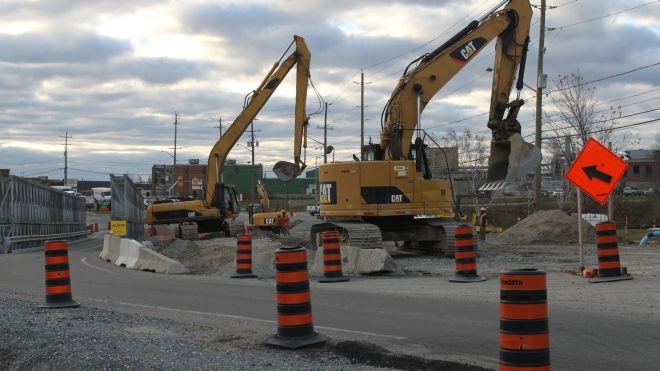An epidemic problem in Ontario’s construction industry may finally be remedied.
The provincial government appears well on its way to enacting a system of prompt payment by next spring to address a long-standing issue that has plagued the building sector for decades.
Industry groups have contended that late payment problems have been rampant in Ontario’s construction sector with trade contractors having to wait months to get paid for work that’s been certified as being complete.
Bill 142 introduced prompt payment measures, which will folded into an overhaul of the Construction Lien Act, which hadn’t been updated since the early 1980s.
Ian Cunningham, president of the Council for Ontario Construction Associations (COCA), said Bill 142, if passed, stands to be a “major change in the way payment will be required to flow” down through the construction project pyramid, delivering “payment certainty to the industry.”
“This will allow contractors to bid on more work, hire more journeypersons, take on more apprentices, invest in equipment, and if the contractor is a unionized contractor, to pay union trust funds,” said Cunningham.
“Bill 142 may even bring down the cost of construction as payment certainty will make the inclusion of a late payment in a bid unnecessary.”
The bill was introduced at Queen’s Park last spring and unanimously passed second reading in early October before heading to committee for hearings in late October and early November.
The bill is expected to pass before the adjournment of the fall 2017 legislative session with the provisions of the act coming into force six months following royal ascent.
The payment regime and dispute resolution system will be active 18 to 24 months after that.
In his presentation to the committee, Cunningham called Bill 142 a “grand compromise” that most stakeholders can live with.
Most importantly, a new section on prompt payment lays out the process for contractors to be paid.
Under the new rules, a project owner is required to pay a general contractor within 28 days of receiving the invoice. In turn, the general contractor must pay a subcontractor within seven days after receiving payment from the owner.
COCA was part of a coalition of contractors, suppliers and trade unions that persistently lobbied for prompt payment laws after previous bills died in Queen’s Park.
The Wynne government finally decided to tackle the problem through an independent review in 2015, led by construction law experts Bruce Reynolds and Sharon Vogel.
The recommendations of the so-called “Reynolds Report” formed the backbone of Bill 142, which included several rounds of industry consultation across the province.
Cunningham said he was “fully supportive” of the report, with Reynolds, Vogel, and their 15-member panel made up of “many of the best experts on the subject in Canada.”
“The process followed for the development of Bill 142 is a model for sound policy development.”
The Wynne government introduced some 20 amendments that Cunningham characterized as minor in nature that will cover the legalities of construction projects currently underway.
Otherwise, he expects the bill to pass through the legislature clean.
“No major change in policy direction is expected.”
Cunningham expects there to be residual opposition to the new prompt payment by some “large, bureaucratic, slow-moving organizations” but he reconciles that by arguing it’s difficult for anyone to justify not paying a contractor “in a timely fashion for work that’s been completed without dispute.”
“All stakeholders will support the bill in principle. It would seem almost immoral not to.”
On previous bills, groups like the Ontario Home Builders' Association and the Association of Municipalities of Ontario wanted a redraft based on 30-day “must-pay” stipulations, especially if there were disputes over contractor performance or work not yet done.
Bill 142 contains adjudication procedures to resolve prompt payment disputes.
Once the bill becomes law, Cunningham said there will be a great deal for contractors to learn.
“This will represent a tremendous challenge and opportunity for construction associations to get their member contractors up to speed.”




